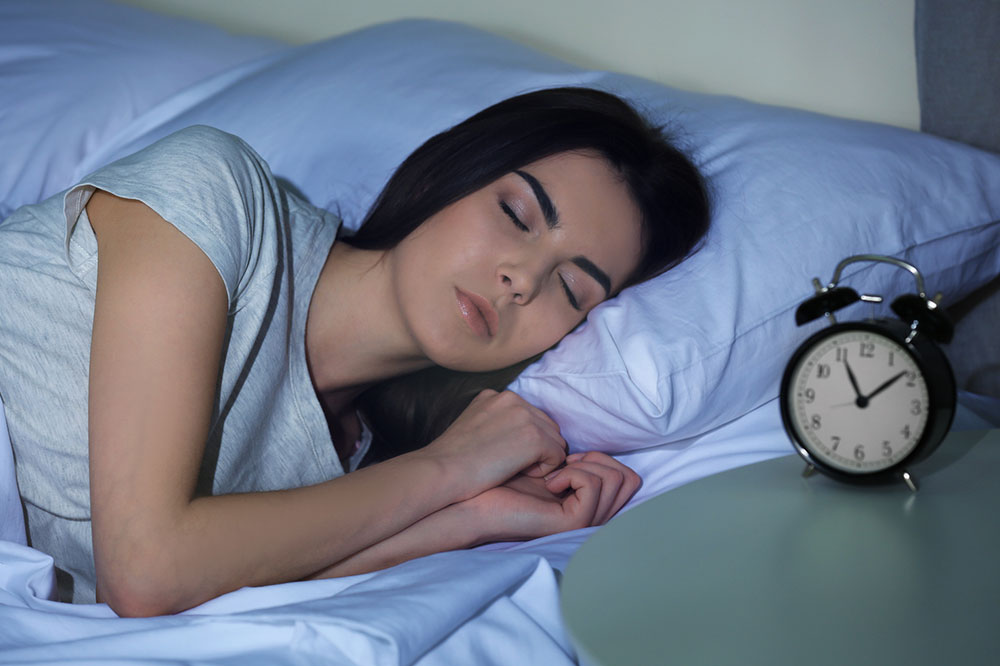6 Helpful Tips for a Healthy Sleep Cycle

A good night’s sleep is one of the critical factors to a high quality of life. Healthy sleep habits indicate the individual’s mental and physical well-being. However, in this day and age, several factors hinder sleep despite an efficient lifestyle. Heartburn can significantly impede a healthy sleep cycle, but there are ways to prevent and manage it. This article will discuss ways to avoid heartburn and get a better night’s sleep.
What is heartburn, and how does it impact sleep?
Heartburn is a burning sensation in the chest or throat caused by acid reflux and can make it challenging to get a comfortable and sound sleep. Fortunately, there are quite a few strategies a person can use to prevent and manage heartburn and get a healthy and restful sleep during the night.
Heartburn is a common condition caused by the regurgitation of stomach acid into the esophagus, leading to a burning sensation in the chest or throat. This burning sensation can become more uncomfortable when lying down, making it difficult to get comfortable and stay asleep. Additionally, heartburn can cause difficulty breathing, resulting in frequent waking throughout the night and poor overall sleep quality. Therefore, it is imperative to avoid foods that cause heartburn at night. Studies suggest that food breaks down more efficiently when one eats dinner early in the evening. People suffering from frequent heartburns must avoid oily, tomato-based, carbonated beverages and citric and spicy foods. More on the list of foods to be avoided at night would be fast foods, pizza, fried foods, cheese, and fatty meats like bacon and sausages.
6 tips for a healthy sleep cycle
Establishing a regular sleep schedule
Establishing a regular sleep schedule is vital in preventing and managing heartburn. Having a consistent bedtime and wake time helps regulate one’s body’s internal clock, making falling and staying asleep easier. Additionally, it is essential to ensure that a person gets at least six to eight hours of sleep each night. Physical exercise is one of the critical factors that help improve the quality of sleep. This will help to reduce stress levels, which can be a trigger for heartburn.
Being physically active
Being physically active is recommended to maintain the overall health of a person. Regular exercise and spending time in the open air can help a person improve the quality of sleep. However, one should avoid any heavy physical activity close to bedtime. One must ensure that there is a gap of a minimum of three hours between a workout and one’s bedtime, or one’s body will continue to be in active mode even after hitting the pillow.
Limiting daytime naps
Daytime or power naps, as they are popularly called, can benefit some people, but too much daytime sleep can interfere with nighttime sleep and make it more difficult to fall asleep. If a person is trying to prevent heartburn, it is best to limit daytime sleep to not more than 30-40 minutes and avoid napping too late in the afternoon. This will help ensure one is well-rested and ready for bed at a regular bedtime. Sleeping soon after a meal can also increase the chances of heartburn. Therefore, it is essential to avoid overeating in the afternoon, which can also induce sleep or lethargy, which tends to make a person feel tired.
Managing stress levels
Stress is the most common trigger for heartburn, so managing stress levels is essential. It is critical to be mindful when dealing with stressful situations. People under stress tend to move away from their healthy lifestyle by participating in many activities far away from a healthy routine. However, yoga, meditation, journaling, and exercise can equip people to handle stress better. Additionally, it can be beneficial to practice relaxation techniques such as deep breathing and progressive and guided muscle relaxation before bed. This will help to relax the body and mind, making it easier to fall asleep and stay asleep.
Creating a restful environment
Creating a restful environment is essential for getting a good night’s sleep. This means avoiding activities that can be stimulating, such as watching television or using the phone or computer just before hitting the bed. Watching digital screens just before rest has proved very detrimental to sleep. People using phones or watching television during bedtime tend to feel tired while waking up. Additionally, it is vital to ensure the bedroom is comfortable and quiet. This may mean investing in blackout curtains or a white noise machine to block out external noise. Also, keeping the room within a temperature window of 19 to 23 degrees celsius is ideal for entering sleep mode as soon as possible.
Avoid caffeine or sugar-laden drinks
Drinking anything that contains caffeine will make it difficult for a person to fall asleep. One should avoid drinking coffee, tea, or any sugary and fizzy drinks as bedtime approaches. Moreover, it is best to limit any fluid intake as the night wears on so that one will not wake up in the middle of the night due to the need to use the bathroom.
Sleep patterns suggest a positive mindset and, thus, a positive life. Our activities are intricately connected. One wrong choice can have a consequence on other aspects of life. Bad food choices, unable to manage stress, and letting one’s sleep go haywire due to excessive phone usage during the night can induce heartburn. Heartburn can significantly hinder a healthy sleep cycle, but there are ways to prevent and manage it. So do not let heartburn get in the way of a healthy sleep cycle—start implementing these tips today for a better night’s sleep tomorrow. By following the tips outlined in this article, a person can reduce the occurrence of heartburn and get a better night’s sleep. It is suggested to visit a healthcare provider in case heartburn worsens or one frequently faces the issue of a disturbed sleep cycle.